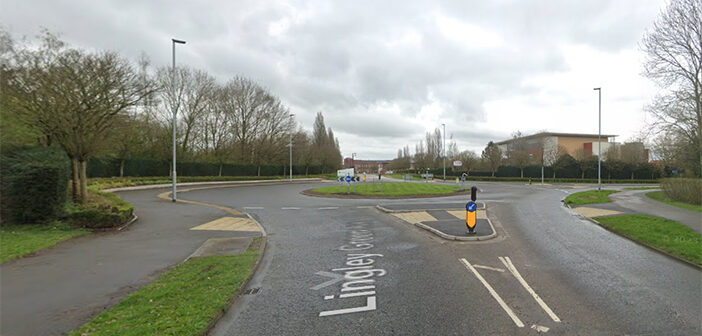Your Escape To The Country: A Step-by-Step Relocation Plan

Table of Contents
Financial Planning for Your Country Relocation
Before you even start browsing idyllic cottages, you need a solid financial plan. A successful country relocation hinges on understanding the costs involved and securing the necessary funding.
Assessing Your Finances
The first step is a realistic assessment of your current financial situation. This involves more than just checking your bank balance.
- Calculate moving costs: This includes transportation (hiring movers, fuel costs for a personal move), potential renovation costs (updating plumbing, electrical work, etc.), and any associated legal fees.
- Estimate living expenses: Rural life often means higher fuel costs for commuting, potentially limited or expensive public transport, and possibly higher costs for groceries due to limited local options.
- Investigate potential income sources: Will you continue your current job remotely? Are there suitable job opportunities in your chosen rural area? Consider all potential income streams.
It's crucial to have a substantial financial cushion for unexpected expenses. Rural properties often require more maintenance than urban dwellings, and unexpected repairs can quickly drain your resources.
Exploring Funding Options
Securing funding for your country home purchase is a critical part of the process.
- Compare mortgage rates: Research different lenders and compare interest rates, terms, and conditions. Consider fixed-rate versus variable-rate mortgages.
- Explore government grants and subsidies: Some governments offer grants or subsidies to encourage rural relocation. Research what's available in your area.
- Consider alternative financing: Explore options like personal loans or utilizing savings. Talk to a financial advisor to understand the best strategy for your individual circumstances.
Seeking professional financial advice from a mortgage broker or financial planner is highly recommended before committing to a rural property purchase. They can guide you through the complexities of financing and help you make informed decisions.
Finding Your Perfect Country Property
Finding the right property is arguably the most exciting – and challenging – part of your country relocation.
Defining Your Needs and Wants
Before you even begin your property search, define your must-haves and nice-to-haves.
- Property size: How much space do you need? Consider the number of bedrooms, bathrooms, and overall living space.
- Proximity to amenities: How far are you willing to be from schools, shops, healthcare facilities, and other essential services?
- Land size: Do you want a large garden, space for animals, or simply a manageable plot?
- Specific features: Are there specific features you desire, such as a fireplace, outbuildings, or a specific architectural style?
Consider the different types of rural properties available: cozy cottages, sprawling farmhouses, or even smallholdings. Each comes with its own set of costs and maintenance requirements.
Utilizing Resources to Find Your Dream Home
Finding your ideal rural retreat takes time and effort. Utilize a variety of resources.
- Online property portals: Use major online property search engines and filter by location and desired features.
- Local estate agents: Local estate agents specializing in rural properties possess valuable local market knowledge.
- Rural community groups: Networking within rural communities can often uncover properties not advertised widely.
Remember to always conduct thorough property inspections and engage a qualified surveyor to assess the condition of the property before making an offer.
Practicalities of Your Country Move
Once you've found your dream home, the practicalities of the move begin.
Logistics of the Move
Moving to the countryside often presents unique logistical challenges.
- Hire professional movers or DIY: Consider the size and volume of your belongings when deciding whether to hire professional movers or handle the move yourself.
- Arrange transport for pets: Arrange suitable transport for your pets, ensuring their comfort and safety during the journey.
- Secure temporary storage: If you need time to renovate your new home, secure temporary storage for some of your belongings.
Moving large or bulky items to more remote rural locations can be challenging, requiring specialized transport and careful planning.
Connecting Utilities and Services
Before you even unpack, ensure you have access to essential services.
- Arrange utilities: Contact providers to arrange electricity, gas, water, internet, and waste removal services.
- Notify relevant parties: Inform banks, the post office, and other relevant parties of your address change.
Rural areas often have slower internet speeds than urban areas. Investigate options like satellite internet if necessary to maintain connectivity.
Adapting to Country Life
Relocating to the country is more than just moving house; it's a lifestyle change.
Community Engagement
Building a strong support network is crucial when relocating to a new area.
- Attend local events: Attend local fairs, farmers' markets, and other community events to meet your neighbours.
- Join community groups: Join local clubs, societies, or volunteer organizations to integrate into the community.
- Introduce yourself: Take the initiative to introduce yourself to your neighbours and build relationships.
A strong sense of community is often a defining feature of rural life.
Preparing for a Different Lifestyle
Embrace the changes that come with rural living.
- Learn local customs: Learn about local traditions and customs to better understand your new surroundings.
- Plan for longer travel times: Rural areas typically have greater distances between locations, requiring longer travel times.
- Embrace a slower pace of life: Rural life often offers a slower pace than city life. Embrace this change and enjoy the tranquility.
While adapting to a new pace of life and potentially limited access to some amenities may take time, the rewards of country living are often well worth the adjustment.
Conclusion
Relocating to the country can be a fulfilling and exciting experience. By carefully planning your finances, finding the right property, managing the practicalities of your move, and embracing the unique aspects of rural life, you can ensure a successful country relocation. Remember, thorough planning is key to a smooth transition. Start your dream country relocation today! Begin your search for your perfect country property and make your escape to the country a reality. Your perfect rural escape awaits!

Featured Posts
-
 Finding Your Dream Home In The Countryside Budget Friendly Options Under 1m
May 25, 2025
Finding Your Dream Home In The Countryside Budget Friendly Options Under 1m
May 25, 2025 -
 Porsche 956 Nin Tavan Sergisinin Sirri
May 25, 2025
Porsche 956 Nin Tavan Sergisinin Sirri
May 25, 2025 -
 Dar Vienas Porsche Elektromobiliu Ikrovimo Centras Europoje Tvarumo Zenklas
May 25, 2025
Dar Vienas Porsche Elektromobiliu Ikrovimo Centras Europoje Tvarumo Zenklas
May 25, 2025 -
 Footballer Kyle Walkers Milan Party Amidst Family Matters
May 25, 2025
Footballer Kyle Walkers Milan Party Amidst Family Matters
May 25, 2025 -
 Marylands Aubrey Wurst Shines In 11 1 Win Against Delaware Softball
May 25, 2025
Marylands Aubrey Wurst Shines In 11 1 Win Against Delaware Softball
May 25, 2025
Latest Posts
-
 Princess Road Incident Pedestrian Hit By Car Latest News And Updates
May 25, 2025
Princess Road Incident Pedestrian Hit By Car Latest News And Updates
May 25, 2025 -
 Emergency Response Underway Pedestrian Accident On Princess Road Live Updates
May 25, 2025
Emergency Response Underway Pedestrian Accident On Princess Road Live Updates
May 25, 2025 -
 Live Updates Pedestrian Struck By Vehicle On Princess Road
May 25, 2025
Live Updates Pedestrian Struck By Vehicle On Princess Road
May 25, 2025 -
 Princess Road Accident Emergency Services Respond To Pedestrian Hit By Vehicle
May 25, 2025
Princess Road Accident Emergency Services Respond To Pedestrian Hit By Vehicle
May 25, 2025 -
 Warning M62 Westbound Closure For Resurfacing Manchester To Warrington
May 25, 2025
Warning M62 Westbound Closure For Resurfacing Manchester To Warrington
May 25, 2025
